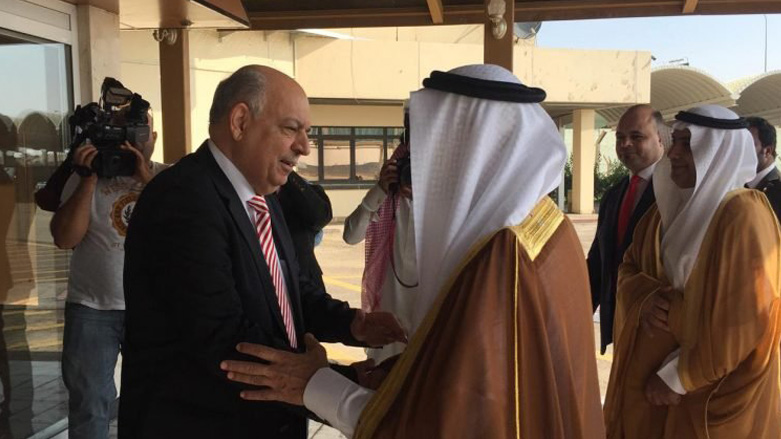Saudi energy minister lands in Baghdad to discuss reducing oil production

ERBIL (Kurdistan 24) – Saudi Minister of Energy Khalid al-Falih arrived in Baghdad on Saturday to discuss future Iraqi crude oil production levels.
This is the first visit of Falih to Iraq since the formation of the new federal government and the selection of Thamer Ghadhban as its oil minister.
They discussed “cooperation between the two countries and the decision to reduce crude production,” according to a statement issued by the Iraqi Oil Ministry. Iraq previously stated that it aimed to increase oil output and exports in the coming year.
“The Coordination Council between the two countries will… put in place appropriate mechanisms to accelerate the realization of economic partnership and activate cooperation and economic integration,” the ministry added.
At the beginning of 2016, Saudi Arabia reopened its embassy in Baghdad, shuttered since 1990 following the Iraqi invasion of Kuwait. In June 2017, Iraq and Saudi Arabia agreed to establish a coordination council in an effort to improve and strengthen relations between the two neighboring countries.
“Falih stressed the depth of bilateral relations and joint coordination in all fields, including decisions on reducing production,” the Saudi energy official said during the meeting with his counterpart in Baghdad, according to the statement.
Falih’s visit to Baghdad came five days after the US renewed sanctions on Iran, targeting energy and financing sectors.
Iraq, OPEC’s second-largest oil producer after Saudi Arabia, had previously planned to boost its crude production capacity to five million barrels per day (bpd) in 2019. The nation currently pumps 4.6 million bpd and exports most oil through its southern ports. Crude leaving Iraq through these ports accounts for more than 95 percent of government revenues.
The oil-rich country also plans to increase its export capacity to 8.5 million bpd in the coming years after improving its capacity, Ghadhban recently said. Iraq has witnessed massive destruction since 2014 in the fight against the Islamic State (IS), with substantial damage to the nation's already overtaxed petroleum infrastructure.
The newly-formed government headed by Prime Minister Adil Abdul-Mahdi, himself a former oil minister, is tasked with rebuilding the country, combatting widespread corruption, and addressing disputes with the semi-autonomous Kurdistan Region, especially those related to energy and disputed territories.
One of the immediate challenges for Iraq is to contend with the global oil shortage caused by sanctions Washington imposed on Iran’s oil sector on Monday.
Ghadhban stated that Iraq wants to know the “actual decline” before Baghdad and other members of OPEC decide on how to deal with the drop in Iranian oil shipments.
He also did not specify his expectation of oil prices in 2019, but said a price above $70 a barrel would be “fair.” The higher the price, the "better" for Iraq, he said.
Editing by John J. Catherine
